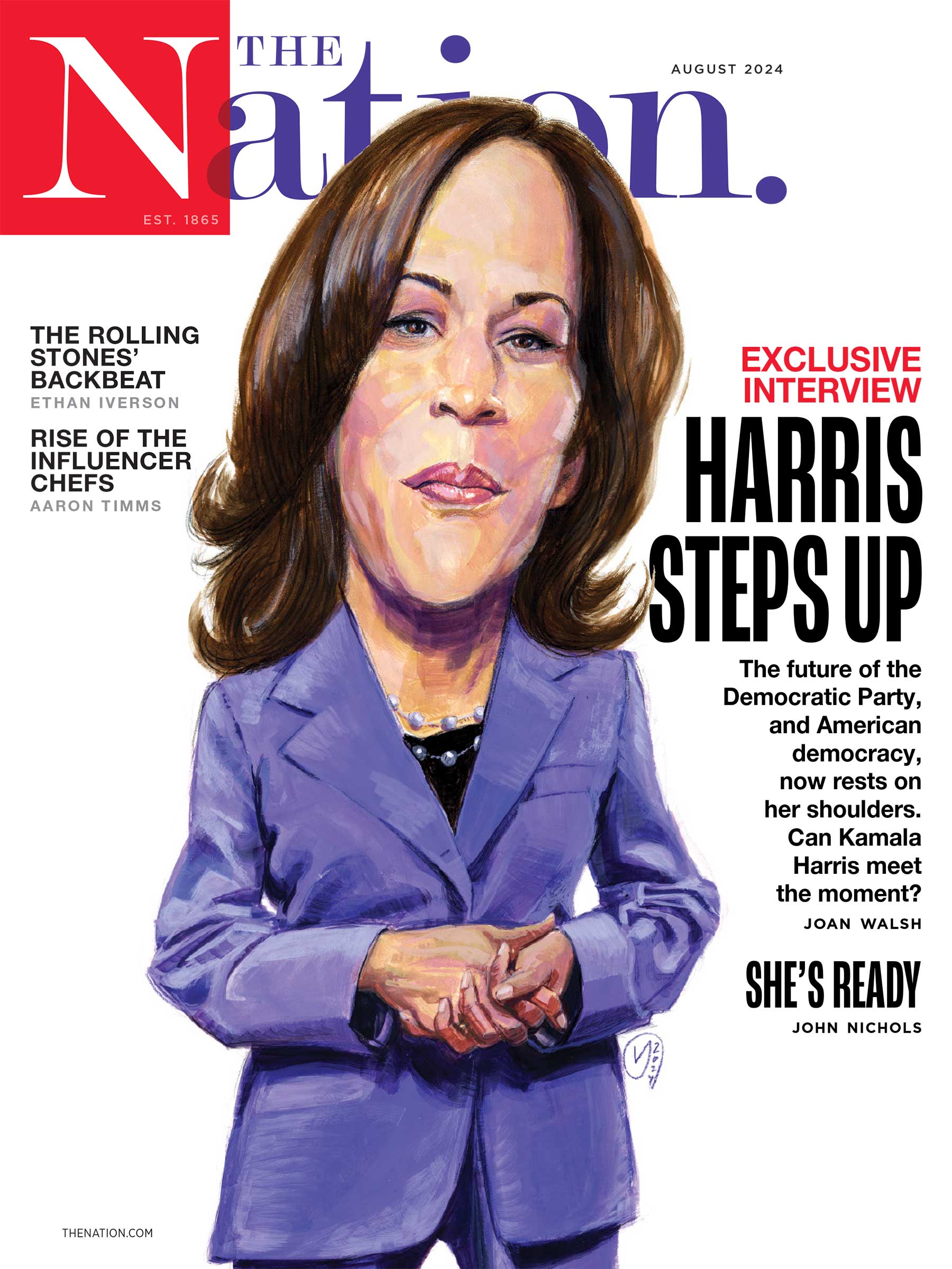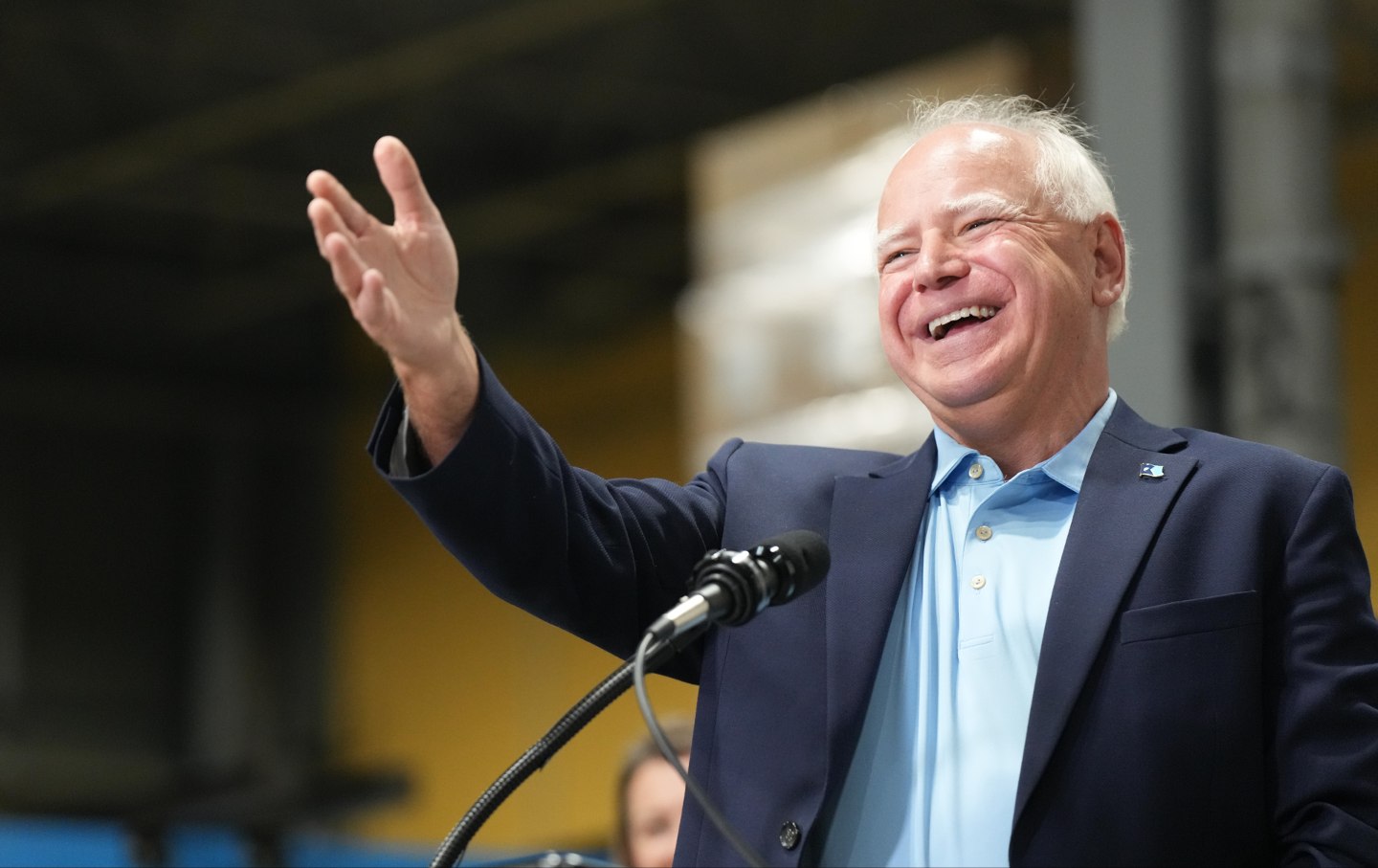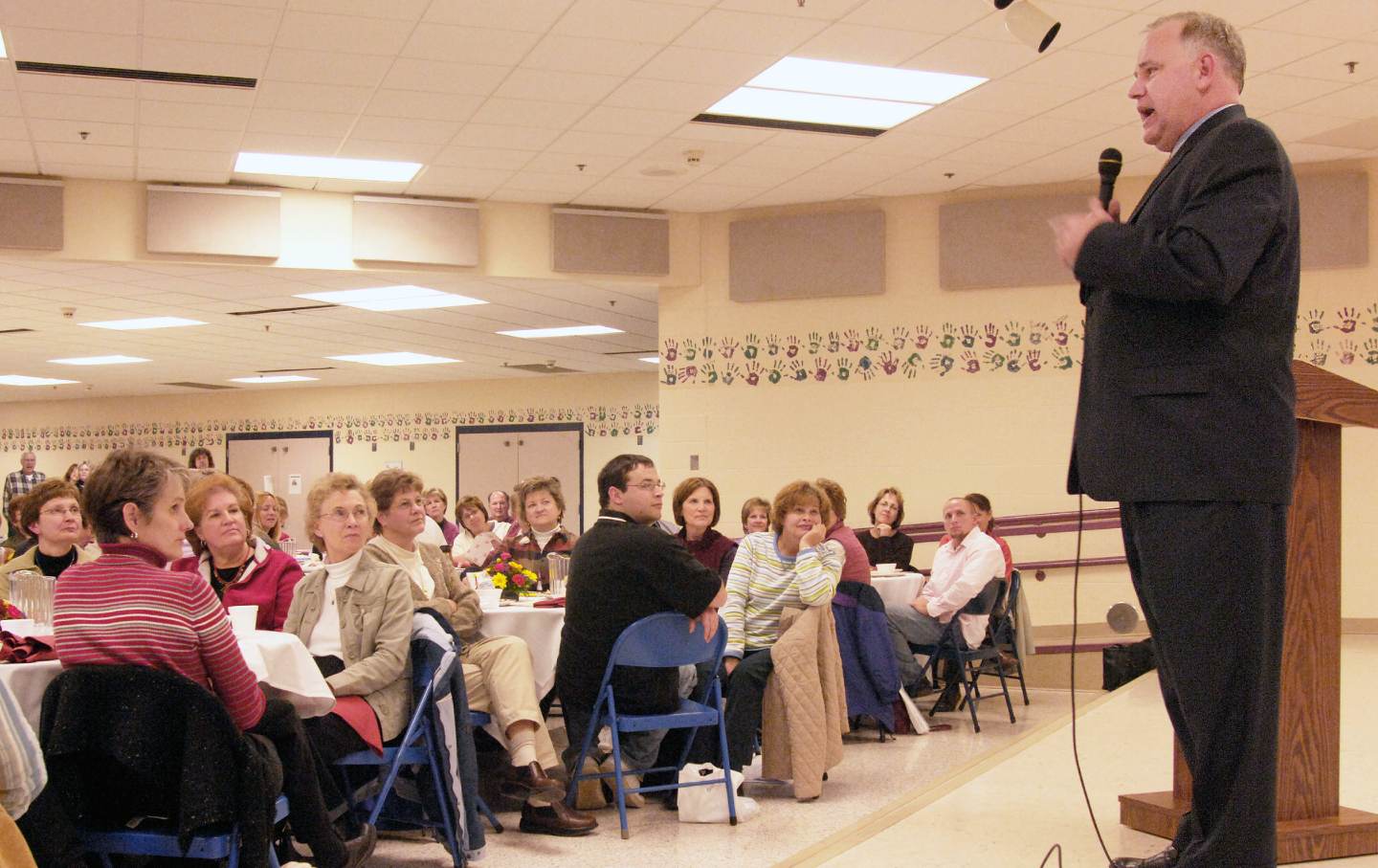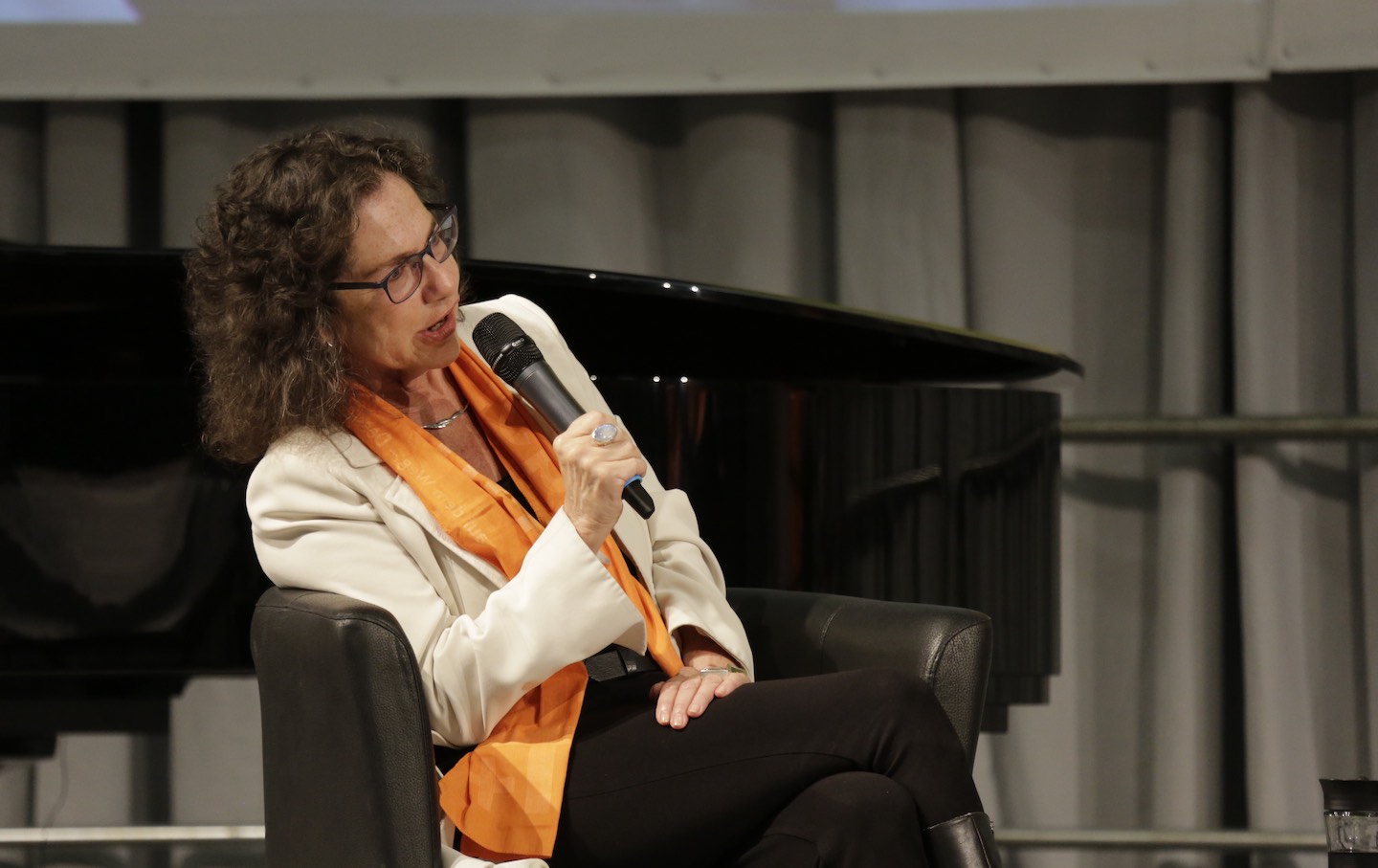Politics
/
August 1, 2024
Let’s stop tipping altogether.

The Republican Party has a knack for tapping into the frustrations of people struggling to survive without actually helping them. Republican presidential candidate Donald Trump has proposed a new idea, exempting tips from taxes. Sen. Ted Cruz (R-TX) has built on that idea by introducing the No Tax on Tips Act in the Senate. Such knee-jerk ideas (Trump said he thought of them after an interaction with a waiter in Las Vegas) do little to address economic inequality.
Tipped workers are among the lowest paid in the nation, and depending on the state they live in, they may be eligible for less than the minimum wage. The federal minimum wage for tipped workers is a terrifying $2.13 an hour, a floor that was last set in 1991.
For those who survive on the margins of our economy as waiters or food delivery drivers, it might seem tempting to have tax-free tips: Most of the GOP promises to working-class Americans are a mirage. But there is a much more equitable solution, one that would benefit the general public, and especially the workers who currently rely on tips. While it may seem radical, what people desperately need is those who earn tips. AND those who pay them, is to eliminate the need for tips altogether.
A March 2024 report from the Center for Economic and Policy Research (CEPR) explains that the federal tipped minimum wage is no longer linked to the minimum wage for other workers and has been frozen since 1991 due to legislation signed by then-President Bill Clinton. Since tips are expected to make up the difference between actual wages and net pay, as the federal minimum wage for other workers has increased, the share of tipped workers’ wages that come from tips has increased accordingly. Today, a whopping 71 percent of tipped workers’ wages at the federal level come from what customers pay them directly.
Current problem

If you’ve ever been fortunate enough to travel outside the United States, one of the most obvious differences you’ll likely notice is that tipping isn’t as commonplace as it is in this country. There’s a good reason for our unique tipping culture. Like many unjust institutions, tipping has a nasty history that dates back to European serfdom and American slavery.
“The practice of tipping dates back to the Middle Ages and the European feudal system, when masters would sporadically give small change to their servants,” explained CEPR’s Sylvia Allegretto. She noted that in the “post-Civil War period, the idea took hold in the United States, as employers hired former slaves.” In other words, the idea of tipping workers instead of paying them a fair wage grew on the backs of African Americans and is a legacy of racist segregationist policies.
Today, Americans as a whole are struggling to make ends meet despite Wall Street shareholders’ cheery dividend projections. And yet we are expected to essentially subsidize our colleagues every time we dine out, order food delivery, or buy even a cup of coffee.
The rules are arbitrary and ever-changing. For example, tips for Doordash and Uber drivers are the norm, but not for Amazon delivery drivers or bus drivers. One financial advisor explained, “Customers are increasingly being pressured to tip for other services, like car maintenance, retail stores, and self-service food, and many are feeling confused and frustrated as a result.” The norm used to be a 15 percent tip. Now, it’s up to 18 percent and, in some cases, as much as 25 percent of the bill.
Tipping is a terrible idea for both customers and workers, but you won’t hear Trump or Cruz say that. Those who can’t afford to tip generously are seen as cruel and stingy. Those who rely on tips have to curry favor with every customer to get a fair wage. Tips fuel sexual harassment and wage theft.
Tipping is also antithetical to union formation, as it is consistent with the hyper-individualistic capitalist ethos of setting wages based on individual interactions, while unionization is about pooling resources to fight for a common good. In fact, tipped workers are about 75 percent less likely to be unionized than other private sector workers.
It is no surprise then that American distaste for tipping culture is at an all-time high, and that most would prefer workers to be paid a living wage without being dependent on tips. Just over half of tipped workers would prefer a steady wage without having to deal with the indignity of having to pay tips to survive.
Proposing tax-free tips may seem like a tempting idea, but it won’t address the core of the issue, which is a serious labor problem. Instead, the primary outcome of Trump’s idea would be to reduce government tax revenue, which is the Republicans’ ultimate goal.
Doing right by tipped workers (and consumers) involves reconfiguring our entire economic system to ensure that no one depends on tips and that everyone has enough to live on. Grassroots campaigns like One Fair Wage have pushed for such a reconfiguration.
Additionally, in 2021 and 2023, Democrats introduced a bill called the Raise the Wage Act, which would end subminimum wages for tipped workers while raising the federal minimum wage for everyone to $17 an hour by 2028.
Advertising Policy
But such legislation doesn’t have the same superficial appeal as Trump and Cruz’s idea. Democrats would do well to challenge the party on why we live in a nation where tipping is the norm in the first place, a question that would likely resonate with most Americans and could lead us down the path to shared prosperity for all.
Popular
“swipe left down to see more authors”Scroll →
Can we count on you?
In the upcoming election, the fate of our democracy and basic civil rights are at stake. The conservative architects of Project 2025 are planning to institutionalize Donald Trump’s authoritarian vision at every level of government if he wins.
We have already witnessed events that fill us with both terror and cautious optimism, in all of this, The nation has been a bulwark against misinformation and a champion of bold, principled perspectives. Our dedicated writers sat down with Kamala Harris and Bernie Sanders for interviews, parsed J.D. Vance’s shallow right-wing populist appeals, and discussed the path to a Democratic victory in November.
Stories like these and the one you just read are vital at this critical moment in our country’s history. Now more than ever, we need independent, lucid, and deeply researched journalism to make sense of headlines and separate fact from fiction. Donate today and join our 160-year legacy of speaking truth to power and elevating the voices of grassroots advocates.
Throughout 2024, and in what will likely be the defining election of our lifetimes, we need your support to continue publishing the eye-opening journalism you rely on.
Thank you,
The editors of The nation
Sonali Kolhatkar
Sonali Kolhatkar is an award-winning multimedia journalist. She is the founder, host and executive producer of YES! Presents: Rising Up with Sonalia weekly television and radio program broadcast on Free Speech TV and Pacifica stations. His most recent book is Rising Up: The Power of Storytelling in Pursuit of Racial Justice (City Lights Books, 2023) and his next book is Speaking of Abolition: A World Without Police Is Possible (Seven Stories, 2025).
More from The nation

Kamala Harris held virtual primaries for her vice presidential candidates, and Tim Walz thrilled voters like no other.
John Nichols

“I was an average student, better in some subjects, worse in others, and he didn’t exclude the lower-achieving students.”
Joanna Walsh

Vice President Harris’s running mate is a heartland governor who has championed working-class Minnesotans. It’s a departure from the party’s long slide into Beltway elitism.
Chris Lehman

In a demonstration that Democrats are finally taking the issue of Supreme Court control seriously, Senator Chekhov Schumer has proposed the No Kings Act.
Elie Mystal

Interview with political philosopher Susan Neiman, author of Left Is Not “Woke.”
Column
/
My life is nice

The focus of Brigitte Studer’s book Travellers of the World Revolution is not the leadership and political changes of the Comintern, but the history of its base.
Books and Arts
/
Tony’s Wood





